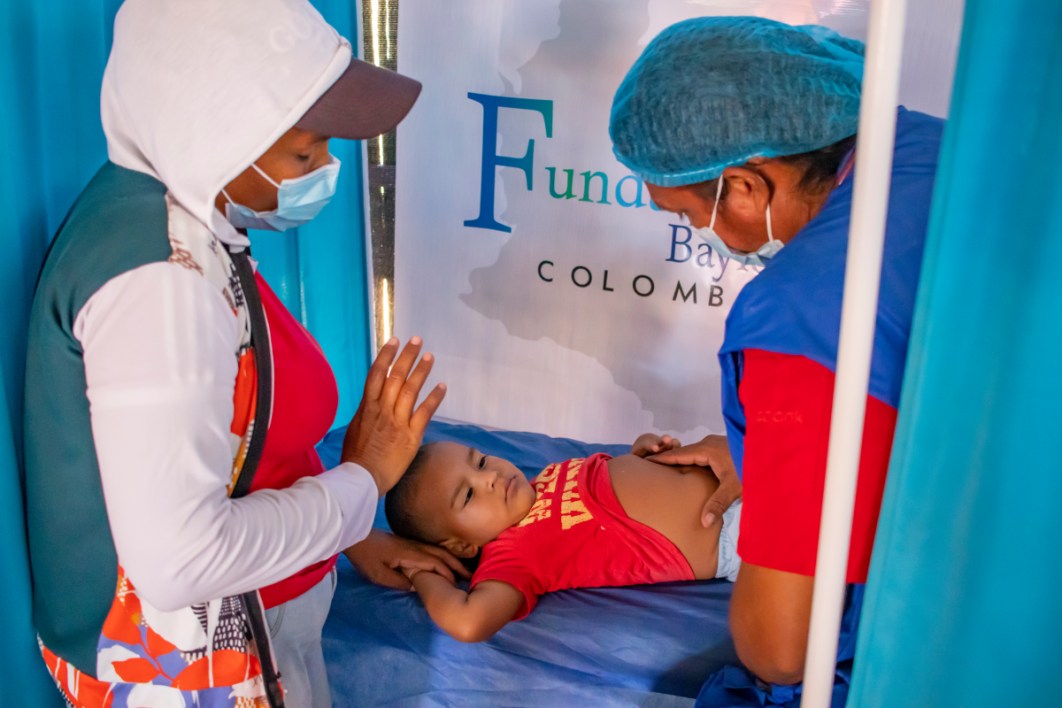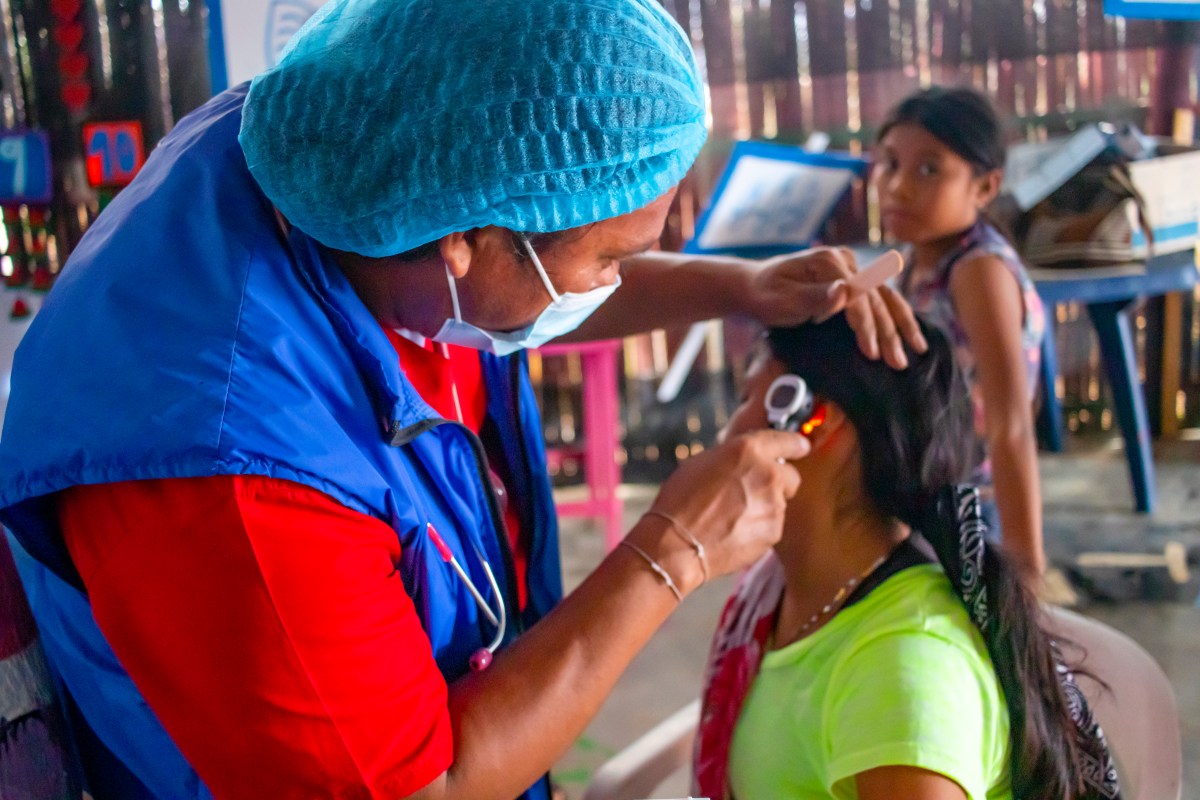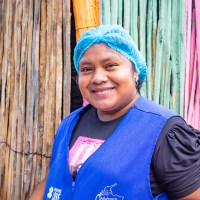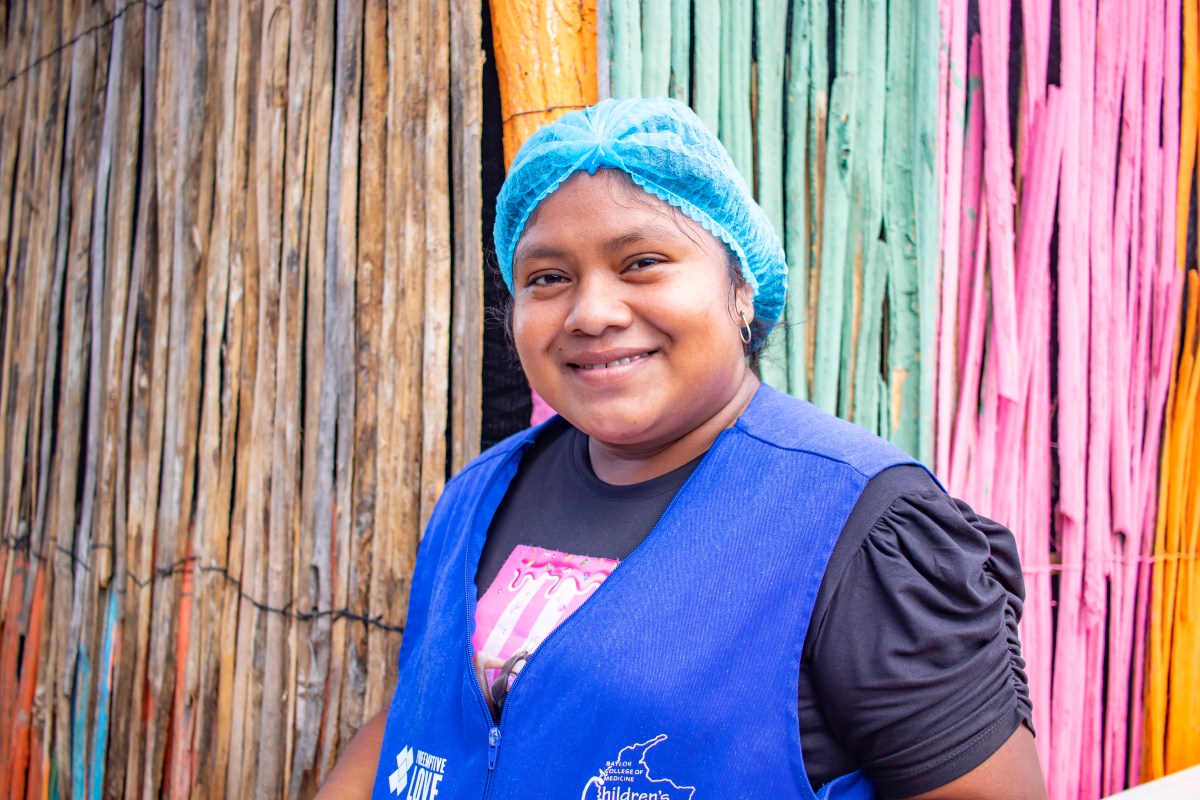Against the dune-lined coast, scant plant life holds on for dear life in the thirsty soil. How can the landscape be desertified with so much water nearby? For centuries, the Wayuu, an indigenous community living in La Guajira, Colombia, have navigated this paradox with traditional practices such as conserving water in jagueyes, natural aquifers filled by rain, and herding goats. Now, climate change and extreme poverty threaten their way of life. A lack of sufficient food, potable water, and access to health services for rural indigenous communities has led to high levels of malnutrition among the Wayuu.
A child under five dies once a week.

How Severe is Malnutrition among the Wayuu?
In Colombia’s La Guajira region, most families are food insecure. Many kids eat only once per day, and these meals don’t meet their nutritional needs. As a result, one of every ten children under the age of five dies of malnutrition, meaning a child under five dies once a week. This is six times Colombia’s national rate. Since many deaths happen at home, these figures are probably underreported.
You saw this need and responded. Together we’re taking a bite out of malnutrition with a holistic programming approach.
“Since we began this project in March 2022, more than 3,000 of our Wayuu friends have received care.”
Felipe Ramirez, Team Lead Program Officer, Colombia

Delivering Holistic Care
Sunlight peeps through the community center’s driftwood walls, casting irregular spokes of light on the dusty ground. Today, this multi-purpose community center hosts our mobile medical clinic. Once a week, a doctor, nurse, dental hygienist, and social worker visit each of the three Wayuu communities we support to treat malnutrition and offer pediatrics and gynecological care. Since we began this project in March 2022, more than 3,000 of our Wayuu friends have received care.
If a medical staff member diagnoses a child with acute malnutrition, the child is referred to a hospital. If a child is identified as being at risk of malnutrition, we give them nutritional supplements and monitor them weekly or monthly until they are healthy. But medical care is not enough to combat malnutrition. Moms and dads need a reliable way to get nutritious food for their families.
When wells and aquifers dry up due to climate change, crops don’t grow, which makes sustaining livestock more difficult. There are fewer goats, on which the Wayuu traditionally relied for meat and milk. Fewer crops and less livestock have changed families’ diets. People rely on low-cost staples such as chicha, a fermented corn drink, which are less nutritious. You saw this need and responded. Together, we’re helping fight food insecurity with our recycle for food program.
It’s hard to combat malnutrition without access to clean water. With less rainfall, natural aquifers become contaminated, salty, or dry up. 96% of people in La Guajira’s rural settlements don’t have reliable access to potable water. A lack of clean water leads to poor hygiene and diarrhea, draining people of crucial nutrients.
Wayuu communities do not have running water. Some people have to walk 90 minutes to reach an aquifer. Others have to spend their limited resources to travel to a water center and buy water. You responded to this need too, and the three settlements we support now have access to clean water.
Empowering Local Leaders
In the community center, Maria, a health promoter, is about to measure a patient’s height. Maria wordlessly handles the patient’s ponytail to straighten the patient’s head before she smooths down the patient’s hair. The action is intimate and calming, reflecting the trust and care flowing between Maria and the patient.
The role of the health promoter is intrinsic to the success of our mobile medical clinics. The healthcare promoter is in charge of building awareness for our different projects and encouraging people to participate in them, so the community needs to trust them. Maria has lived in the community she serves for over half her life. The community knows and trusts her.
Having someone explain a medical problem and its solution in your language is a great comfort. Usually, medical care providers in nearby cities speak Spanish whereas most Wayuu speak Wayuunaiki. Maria, as do our other health promoters, speaks both.
When the settlements were flooded in the recent heavy rains, families in the community were relocated to shelters in the city. The health promoters organized bringing our medical teams to the shelters. The health promoter also organizes appointments to ensure that all community members receive care. Promoters are trained to host knowledge dialogues, and the informal exchange of best practices from both traditional and western medicine further improves health outcomes. Recent topics include the importance of breastfeeding, protection from gender-based violence, and disease prevention.
Maria receives financial compensation for her hard work, and now she can fulfill a dream of her own. She recently bought a piece of land on which she is going to build her own home. Her commitment to her community grows deeper.
You saw the challenges faced by our Wayuu friends and stepped up. With your help, we’re bringing medical services into the Wayuu settlements we support with our recycle for food program and our water delivery project to provide a holistic approach to fight malnutrition. Building on the strengths of our relationships, we’re addressing health needs with someone from the community while empowering her to fulfill her dreams. There is a Wayuu saying, “It is only from strong sunlight and harsh rain that a seed can sprout.” By working together, the seeds in our Wayuu communities are flourishing.


